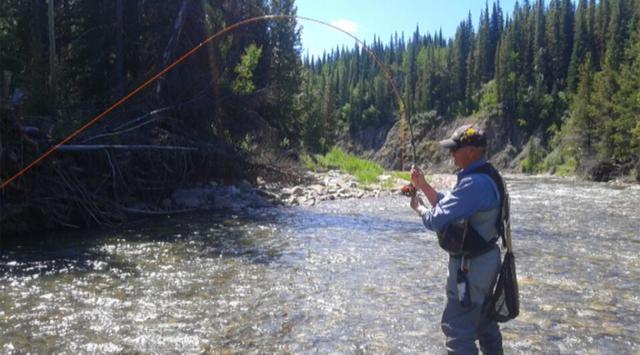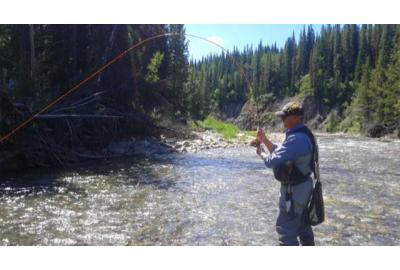With the resurgence of fiberglass fly rods also comes new interest for double tapered fly lines. Double Taper lines have never really gone away but they have been much less in demand because of the desire for anglers to cast faster and farther. Weight Forward lines have all but taken over and many of the modern fly rods made today work very well with them.
Weight forward lines have the majority of their weight in the front or head of the line. They will do a few things better than double tapers. They throw larger nymph rigs and streamers better, they work better against the wind and they can handle longer leaders better. One drawback, with the weight being concentrated at the front is that delivering a dry fly, especially smaller ones, WF lines will tend to splash down much harder than DT lines.

Choose the right fly line for your fishing situations.
Double tapers on the other hand work much better on moderate to slow action rods, like the "new" fiberglass rods on the market. Just as the name implies, double taper lines has the same taper at each end and it’s weight is distributed evenly throughout the line. They do several things well, they roll cast great, they mend very easily and they roll out softly on the water, making them ideal for dry flies, this is due to the large open loops that they are designed to cast. These features make DT lines the ideal small stream dry fly line. This is also their downfall in windy situations as the larger open loops do not cut the wind very well.


